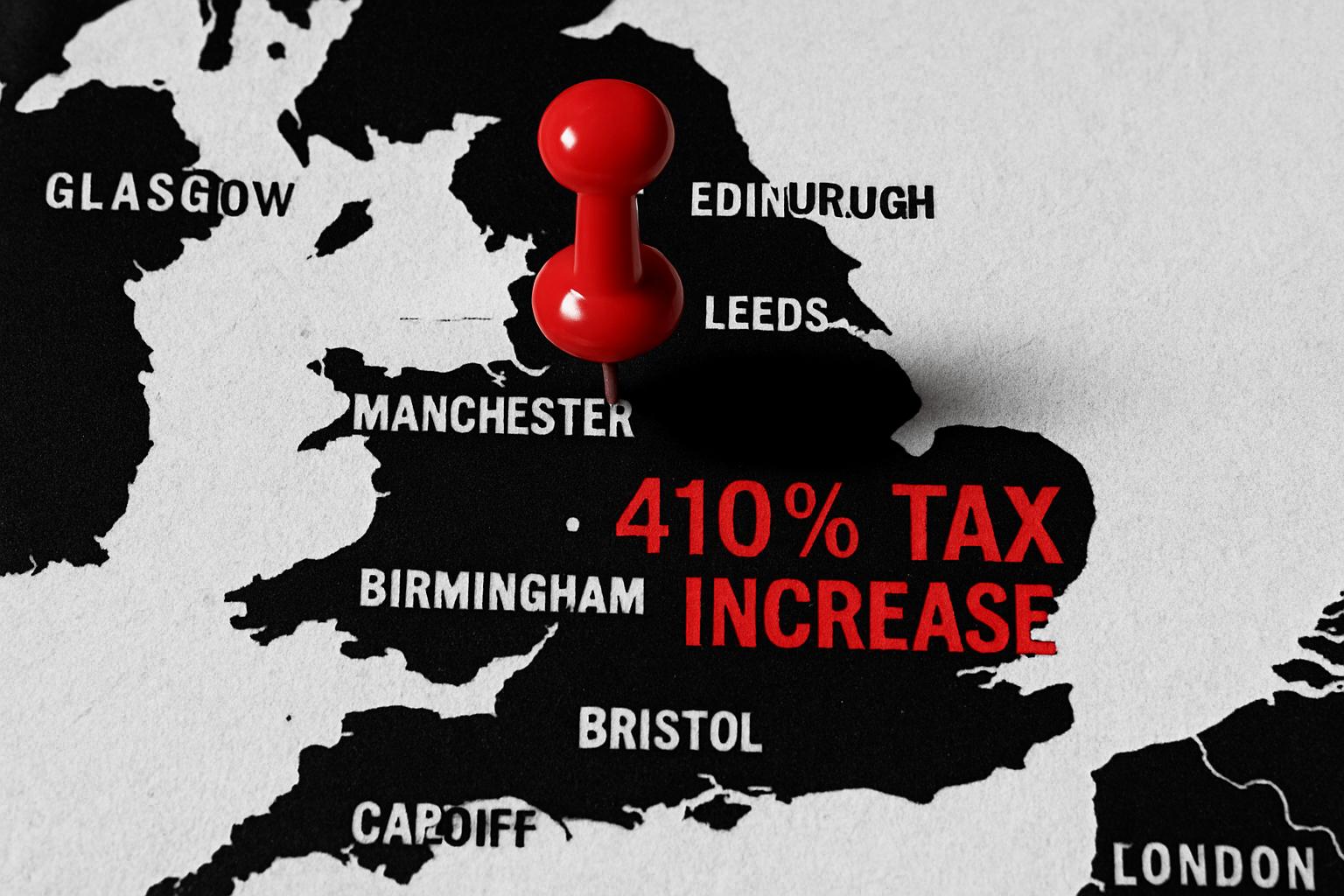Labour faces mounting pressure to substantially increase council tax bills in certain areas by up to 410 percent under proposals to overhaul the country’s long-standing and widely criticised system. The Institute for Fiscal Studies (IFS) has put forward plans to scrap the existing council tax bands, which have not been updated since their inception in 1991, and replace them with a system based on up-to-date house price valuations. This would involve levying a proportional tax on the revised property values instead of relying on outdated bandings that no longer reflect current market realities.
According to the IFS analysis, such reforms would dramatically shift the burden of council tax across the country. Traditional Labour strongholds in the North of England, including cities like Kingston upon Hull, would emerge as significant beneficiaries, with average bills potentially slashed by as much as 60 percent—equivalent to annual savings of around £700 for many households. Conversely, properties in affluent parts of London and the South East could face steep hikes. For instance, in Westminster, household bills might soar by over 400 percent, increasing by an average of £4,645 annually, while other boroughs such as Kensington and Chelsea and Wandsworth are also projected to see large rises. Even Labour leader Sir Keir Starmer’s home borough of Camden in North London could witness increases of approximately 155 percent.
The stark geographic divide highlights the regressive nature of the current system, which the IFS and campaigners argue acts as a de facto wealth tax on ordinary working-class homeowners, especially those in northern towns like Hartlepool, Wigan, and Bolton who already pay a far higher proportion of their home’s value in council tax compared to wealthy Londoners. The current bands, set when the tax replaced the poll tax, cover an enormous range of property values—from less than £40,000 for Band A to over £320,000 for Band H—which has become increasingly disconnected from the reality of today’s housing market, where property prices in commuter towns outside London have grown sixfold, while in parts of the North growth was closer to 2.5 times.
The controversy over updating council tax bands is intensified by the fact that while revising these bands has long been recommended, no government has dared to implement a national revaluation in over 30 years—one was planned for 2005 but ultimately shelved due to political concerns. The Treasury has instead allowed councils a capped rate of increase, currently a maximum of 4.99 percent annually, which almost all local authorities are taking advantage of, pushing average council tax rises to over 5 percent for 2024-25. This has come amid an ongoing funding crisis for local government, with many councils facing bankruptcy or having to cut critical discretionary services such as youth clubs and museums.
Wales has taken the lead by announcing a major revaluation set for 2028, which is expected to raise bills for over 470,000 households while reducing them for around 800,000. Scotland is also considering similar proposals, still relying on 1991 values. The IFS continues to press the UK government to act, arguing that without reform, council tax will continue to be based on “an absurd state of affairs” where taxes in the 21st century reflect property values frozen in the late 20th century.
Beyond simply updating valuations, some experts advocate for more radical reform. In the Financial Times, commentators and think tanks have proposed replacing the top council tax bands with a dedicated property wealth tax to help address fiscal challenges and improve fairness. For instance, a proposal includes a 0.5 percent annual levy on high-value homes and a 1 percent tax on agricultural or unoccupied land above certain thresholds, with safeguards to protect cash-poor pensioners via deferred payments. Such changes would be administered by HMRC and could generate billions in extra revenue without reducing local authorities’ existing funding. The potential benefits include curbing speculative investment in luxury housing, enhancing housing affordability, and better capturing land value increments for public benefit.
Within the Labour Party, attitudes towards council tax reform remain cautious. While the party ruled out changing the bands ahead of their recent election success, the establishment of a council tax consultation process and statements by the local government minister Jim McMahon indicate a willingness to explore funding reforms to direct more resources to struggling northern communities. However, political insiders warn that reform will be polarising given the likely winners and losers across regions and social groups.
The All-Party Parliamentary Group on Council Tax Reform, chaired by Hartlepool Labour MP Jonathan Brash, has been one of the most vocal advocates for comprehensive change, calling for an end to “tinkering around the edges” and demanding a system fit for the 21st century that properly funds local services while alleviating tax burdens on working families in less affluent areas.
Government officials, including a Treasury spokesperson, have remained non-committal on reform speculation, emphasising commitments to low taxes for working people and maintaining current income tax and National Insurance rates. Yet, with mounting financial pressures on local authorities and growing inequities in council tax, the debate over revising or replacing the council tax system—long seen as outdated and unfair—is expected to intensify.
📌 Reference Map:
- Paragraph 1 – [1], [6], [7]
- Paragraph 2 – [1], [2], [7]
- Paragraph 3 – [1], [6], [7]
- Paragraph 4 – [1], [5]
- Paragraph 5 – [1], [6], [7]
- Paragraph 6 – [1], [3]
- Paragraph 7 – [1], [7]
- Paragraph 8 – [1], [7]
- Paragraph 9 – [1], [5], [7]
Source: Noah Wire Services
